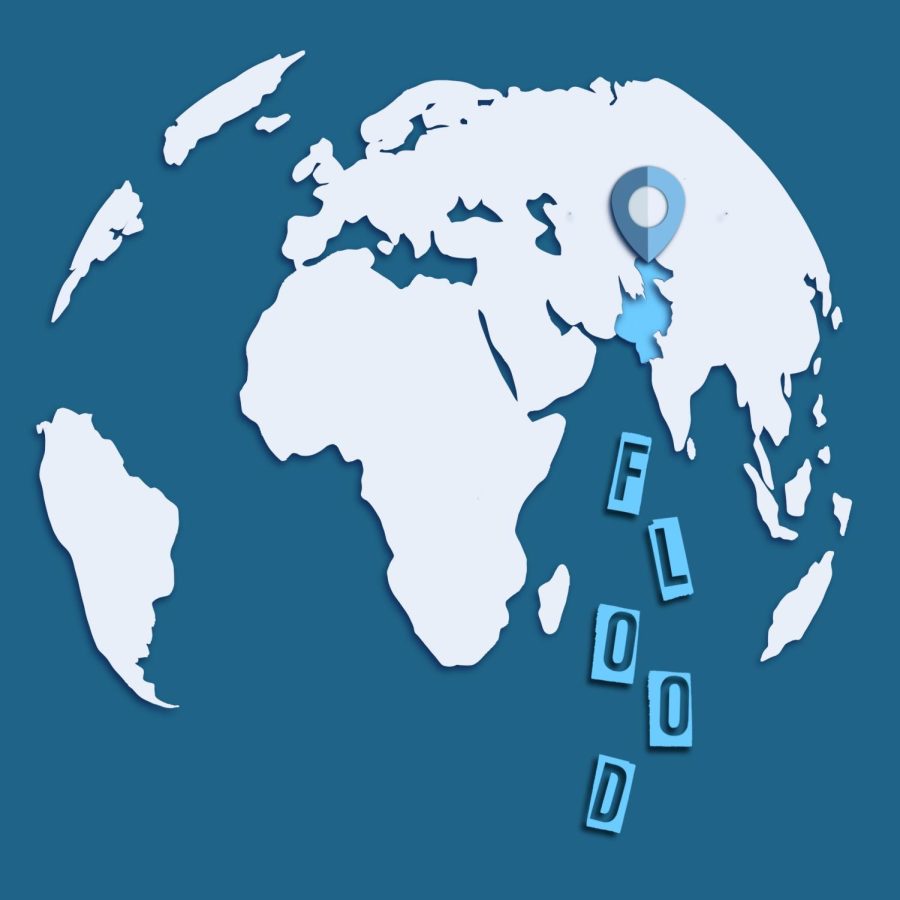Pakistan and global climate awareness
Flooding, secondary disasters and where the world goes from here
It’s no secret that climate change is already occurring. This past summer proved that to the United States with heat waves across the country and severe flooding in Kentucky. More importantly, this summer of extremes emphasized that poorer communities, especially those made up of mostly people of color, bear the brunt of these weather events despite being the least responsible in their contributions to climate change. In developed countries like the U.S., we lack awareness about climate disasters in communities that we deem lesser than our own, and the infrastructure within these risk-prone communities will do next to nothing to prevent climate disasters from uprooting people’s lives. So, how do we save ourselves – and not just the developed world – from the grave we continue to dig?
Currently, in the midst of its wettest monsoon season ever, Pakistan has been subjected to torrential rainfall since mid-June. This heavy precipitation has caused the Indus River to overflow, decimating the southernmost part of the country. As of press time, 33 million people have been displaced and widespread infrastructure damage has further fractured the country. There’s no question that this environmental disaster is the direct result of climate change; Pakistan is surrounded by glaciers that have melted significantly due to warmer temperatures, contributing to the flooding the country is experiencing.
As a result of the floods, Pakistan will experience secondary disasters that will expand across the world stage, namely food shortages, disease and displacement. Even though they won’t be initially affected by these specific crises, other countries will have no choice but to take action and begin to accept accountability for their contributions to climate change. Pakistan is responsible for less than 1% of the world’s greenhouse gas emissions – for reference, in 2016, Pakistan emitted just 178 million tons of carbon dioxide, while the United States emitted a whopping 5 billion tons.
The world is discovering that the countries contributing very little to climate change are disproportionately affected by it. This is due to a variety of factors, such as resource disparity and less mitigation infrastructure. Pakistan is not the only place that is or will be affected by climate change despite its low emission contributions; without the luxury of choice, communities around the world will suffer in buildings made to retain heat, in neighborhoods without trees for shade and in societies that may ignore them entirely throughout the crises to come.
The time for climate action is now – we can’t afford to wait any longer to enact significant change in the way we use Earth’s resources. As things stand, we are grossly underprepared for what the climate crisis entails. Climate refugees alone represent a problem that the world has not considered a solution for, and with at least 33 million displaced people from Pakistan, where does the world go from here?
I think it’s safe to say that at the very least, most leaders of developed countries are interested in saving themselves. But unfortunately for them, this cannot be done without investment into actual solutions and cooperation between global powers. Awareness of how our actions impact the environment around us is vital to understanding how to address the problem at hand. The climate crisis represents the fight between ourselves and our nature, not humanity against the Earth. Our futures depend on the actions we take to support each other, and Pakistan must be the first step down that path.
The path of climate confrontation will be one filled with changes to our way of life, but it’s up to us to determine what those changes will look like: devastation or redemption. We have time left to address the damage we’ve wrought on the world, and how our actions have affected others. All that is left to do is begin.

My name is Ava Peinhardt (she/her), and I'm the Opinions Editor for the Trinitonian. I'm a senior from Plano, TX majoring in Environmental Studies with...





